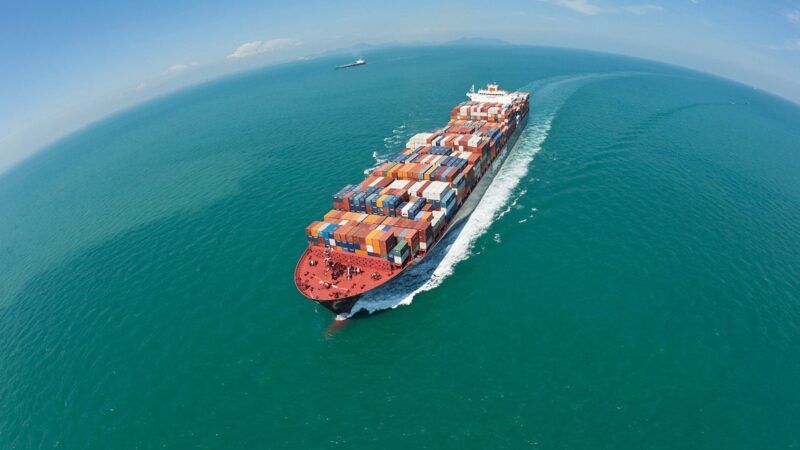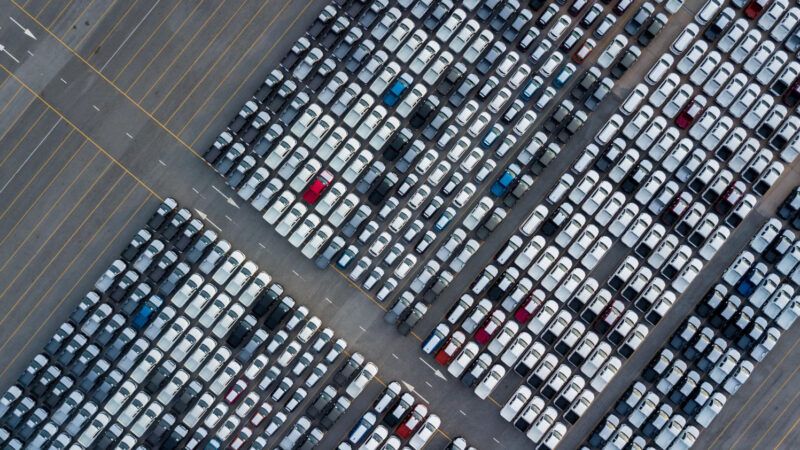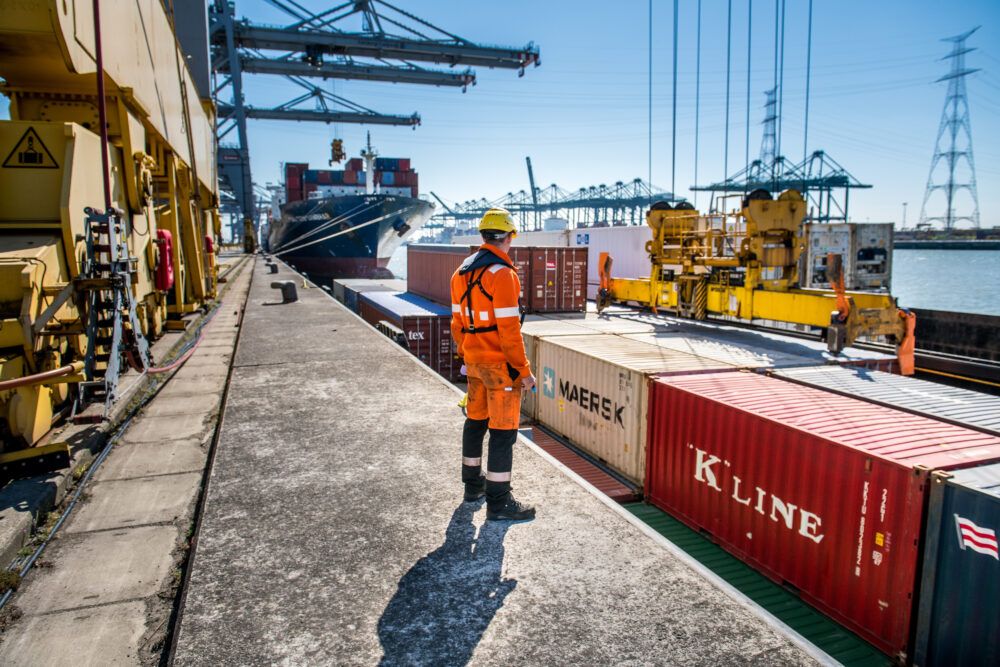 The ports are committed to weaving alliances to strengthen their international network (Port of Antwerp-Bruges).
The ports are committed to weaving alliances to strengthen their international network (Port of Antwerp-Bruges).
The global expansion of ports: the new global players
Creating investment opportunities, diversifying revenues or having a strategic presence in several regions of the world. These are some of the reasons why more often ports are opting for internationalisation. Busan and Antwerp-Bruges share their experience with PierNext.
 The ports are committed to weaving alliances to strengthen their international network (Port of Antwerp-Bruges).
The ports are committed to weaving alliances to strengthen their international network (Port of Antwerp-Bruges).
The global ties of port authorities. The alliances, participations and acquisitions that Busan, Rotterdam, Antwerp-Bruges and several Chinese ports are making in other regions of the world show that establishing global links with other port authorities is a pillar of their business models.
This was said by the spokespersons leading the expansion of the ports of Antwerp-Bruges and Busan in the debate 'International Expansion of Port Authorities', moderated by Jordi Torrent, head of strategy of the Port of Barcelona.
However, not all ports expand in the same way and with the same objective. The round table organised as part of Smart Ports: Piers of the Future 2022, highlighted this diversification.
Busan: supporting Korean companies with a logistics network
Busan, spearhead of the Korean economy. The port of Busan is the first port in Korea and the 6th in the world in terms of container handling volume. "Eighty per cent of exports and imports pass through our port. With the new government, state-owned companies, as in our case, must help Korean companies in their international expansion", explained Jinsun Shin, general manager of the Busan Port Authority's European office, at the round table.
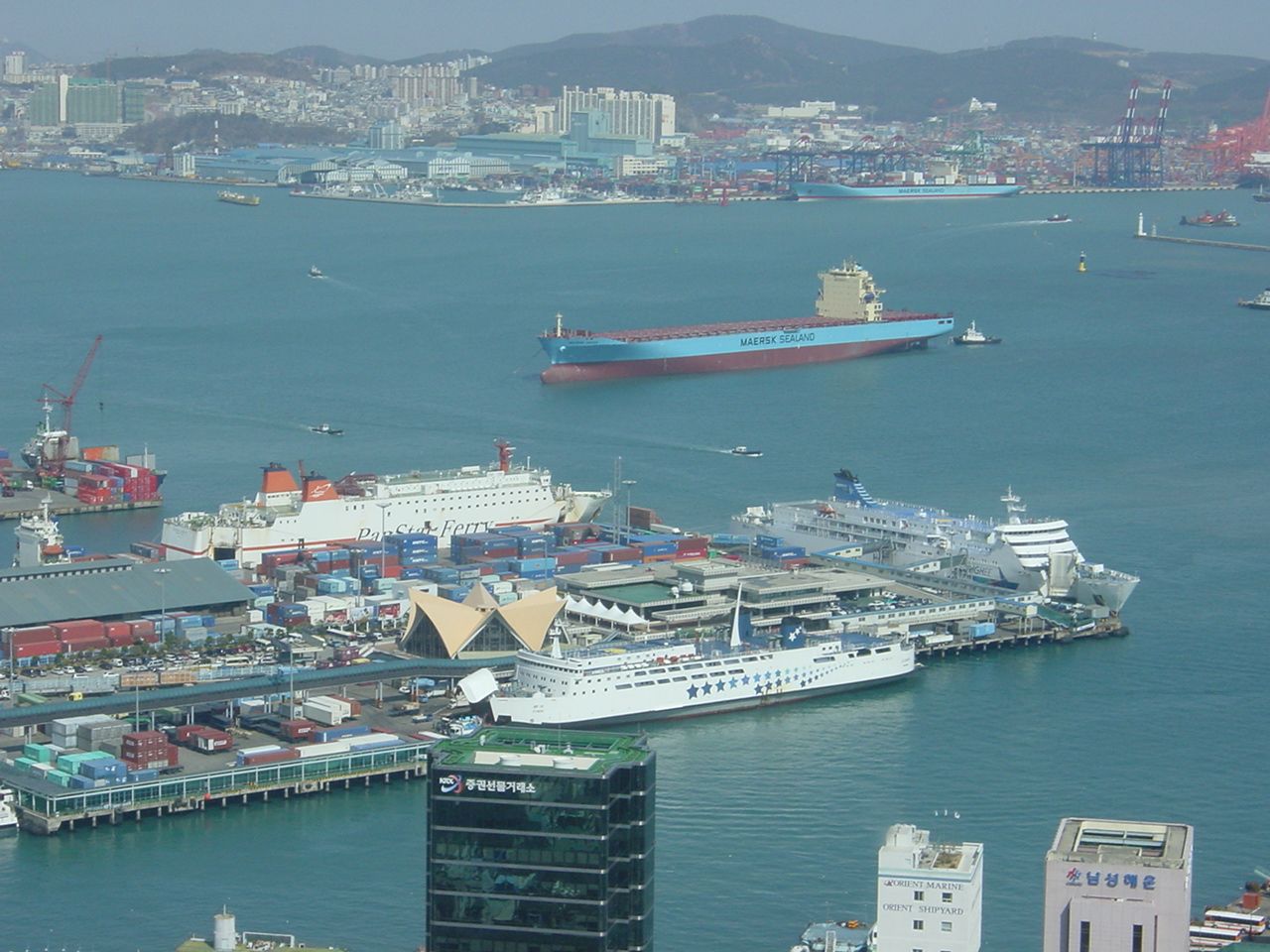
In 2006, the Port of Busan started to open representative offices in cities such as Shanghai, Tokyo, London and Los Angeles. "The representatives research and prepare reports on global maritime trends and send them to the head office as part of our expansion strategy," she shared.
Although Busan Port Authority was established as a public company in 2004, Shin stresses that the adoption of a smart and collaborative strategy is partly responsible for its growth:
On the other hand, the port also collaborates with Korean companies by setting up logistics platforms. The first was opened in Rotterdam and the second in Barcelona. In the second case, the company B2B Logistics Busan & Barcelona hub S.L., in which the Port of Busan owns 51% of the shares and the Port of Barcelona 49%, will be responsible for facilitating the distribution of Korean products through a warehouse located in the Logistics Activities Zone.
"We analysed the cargo volumes of the last five years and contacted local companies exporting to Europe. Rotterdam is the port that handles the largest volume of cargo on the continent and Barcelona in Southern Europe, that is why we selected them," she said.
Shin advanced that Busan is prospecting in Atlanta, United States, and in Iraq, where they are carrying out consultancy work with the government. "We are also considering extending the category of investment and management to include port terminals," advanced the head of the European office that the port has in Rotterdam.
Antwerp-Brujas: a merger that strengthens its global presence
In the case of the port of Antwerp-Bruges, which completed the merger of the ports of Antwerp and Bruges in May, Luc Arnouts, Vice President of International Relations, said that the union of the two allows the creation of a more robust entity to face the challenges of today and tomorrow.
"The integration is vertical and horizontal. Our main focus is the digital and energy transition. The port of Bruges has a lot of experience in importing liquefied natural gas, while Antwerp, which has the largest integrated chemical group, has the need to import green molecules to increase our role as a European importer."
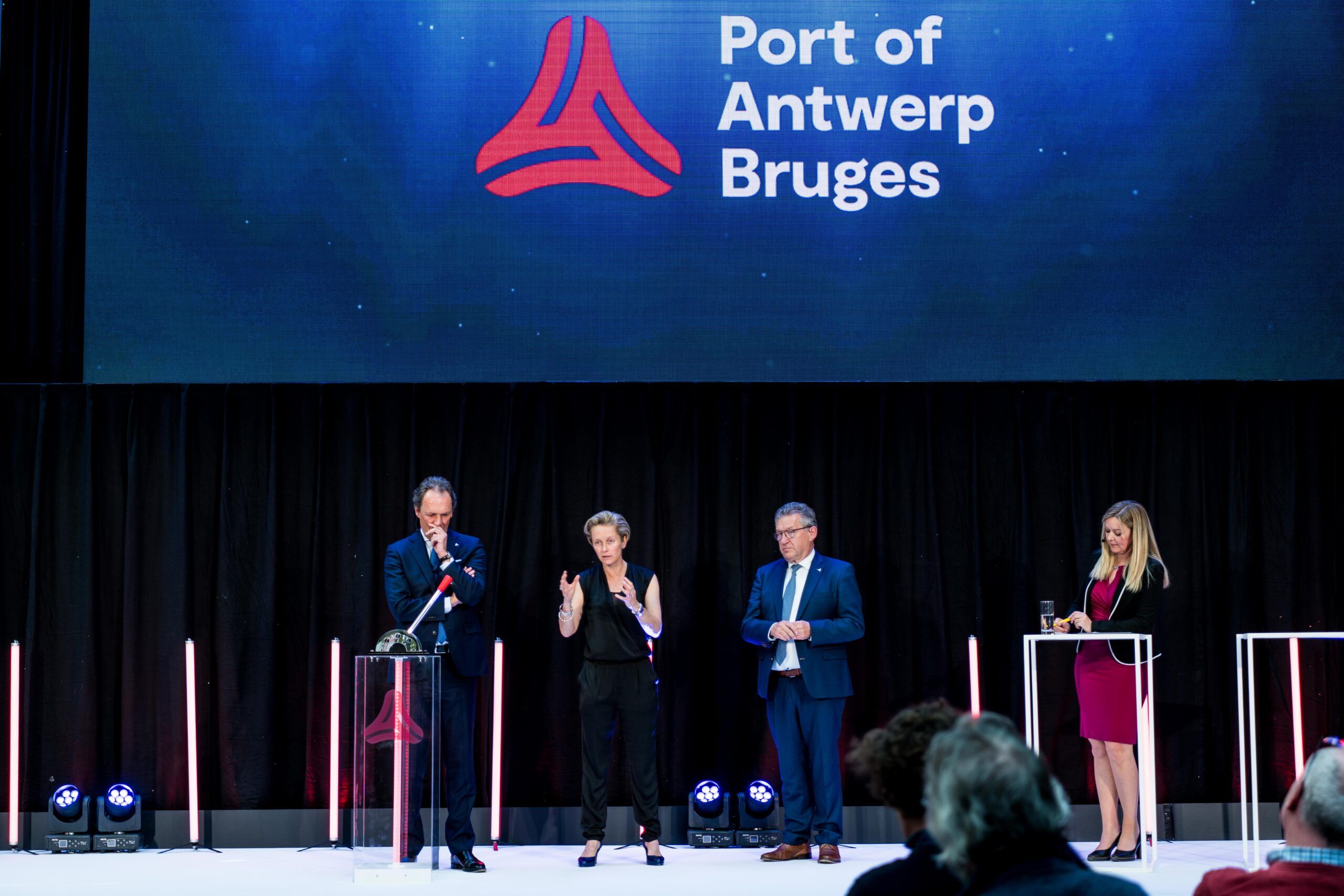
The representative of the Belgian port recounted that they started their international activity decades ago, initially motivated by the promotion and positioning of the port on a global level.
"Another important reason is the cargo flows, where in the world could be interesting for us or where we can have a strong position?," he asked during the round table.
The vice-president of the port of Antwerp-Bruges listedl other reasons: to create investment opportunities for the Belgian companies active on its platform, to internationalise the port staff and to diversify revenues for further growth.
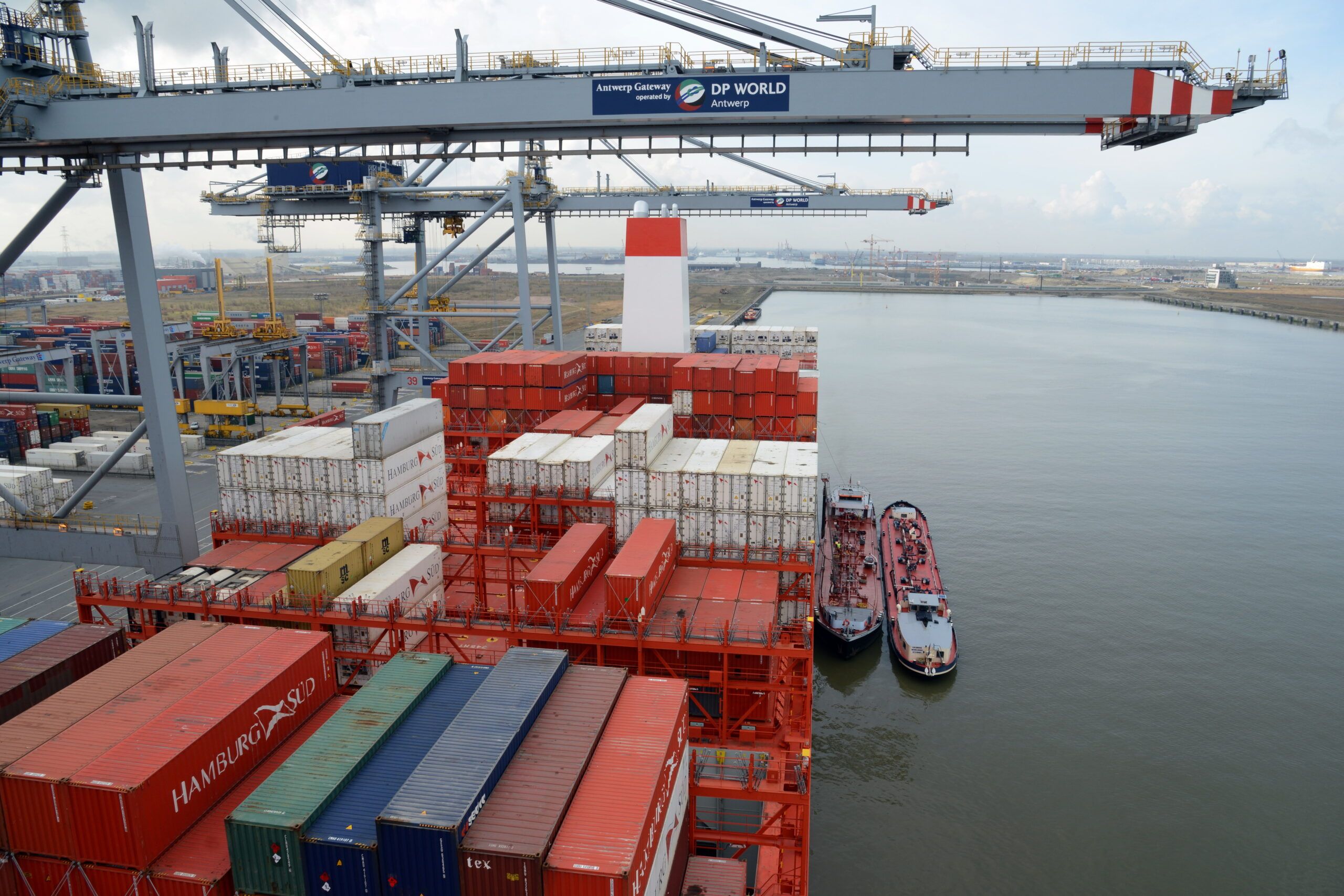
Antwerp-Bruges is represented in 17 countries of the world: Brazil, India, Russia, several African countries and Oman. On the latter, he shared that "it is an ideal location for transhipments and development. We started our first chemical industry there and we are a 25% shareholder in the entity that manages the port of Duqm.”
Arnouts explained that the board of directors of the Belgian port has decided to continue with the development of this business plan, which he described as "ambitious".
"In the next five years, we want to triple our presence in the world. With the merger we feel we have more capacity and greater means available," he said. "The starting point is the current cargo flows but, above all, the future ones. We start with an analysis of the world market, what our share is and what the prospects are, using a proprietary model. Then we draw up a list of target countries that we think can strengthen our platforms," he elaborated.
Where in the world could be interesting for us or where can we have a strong position?"
Luc Arnouts, Vice President of International Relations, Port of Antwerp-Bruges
Rotterdam: port development consultancy
The port of Rotterdam is also present in Oman. Specifically, in Sohar, a port and free trade zone, in a joint venture between the Government of Oman and the Dutch port.
During the climate summit in Egypt (COP27), Dutch Prime Minister Mark Rutte signed a declaration of intent with the government of Oman. The aim is to establish hydrogen import chains from countries with the capacity to generate renewable energy at low cost and export it to northwest Europe.
Rotterdam is also involved in the ports of Pecém (Brazil) and in several ports in Indonesia. In the latter, this is carried on through the company PT Pelabuhan Rotterdam Indonesia, which, among other activities, advises the Indonesian government on port development strategies in five Indonesian ports.
It also offers consultancy services for the development of ports in countries such as Djibouti, Surinam, Beirut, Turkey, Yemen, Sri Lanka, India and Malaysia. It also has offices in Estonia, Germany, Austria, India and China.
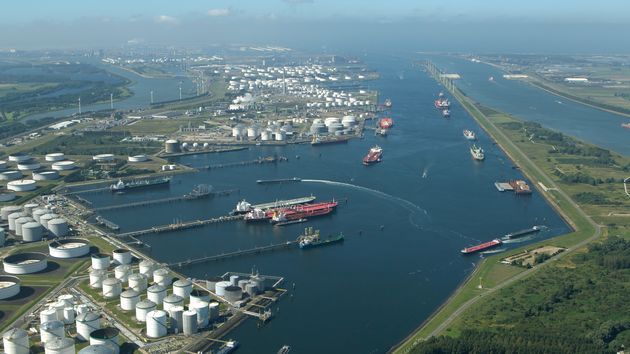
Chinese ports: participation in other port authorities
Chinese ports are also committed to global participation in other port authorities. In some cases, these participations are part of the Belt and Road Initiative (BRI).
- The Port of Shanghai, through Shanghai International Port Group, the Chinese company which exclusively operates the public terminals of the Port of Shanghai, will manage the Israeli port of Haifa for 25 years. The company expects the port to be a reference in the Eastern Mediterranean region in terms of competitiveness and influence.
- COSCO Shipping Ports and Qingdao Port International have invested in the construction of a new terminal at Vado Ligure, near Genoa, which they will manage for at least 50 years. The project will enable the port to accommodate large cargo vessels and increase the terminal's capacity to more than one million containers per year.
Having representatives abroad is a common policy in other ports. In the case of the Port of Barcelona, its delegates are located in various regions such as China, Japan, ASEAN, South America, Morocco and France.
These examples show that the ports are committed to weaving alliances to strengthen their international network. A path that goes beyond the traditional local and regional routes and turns them into centres of a planetary logistics strategy.



